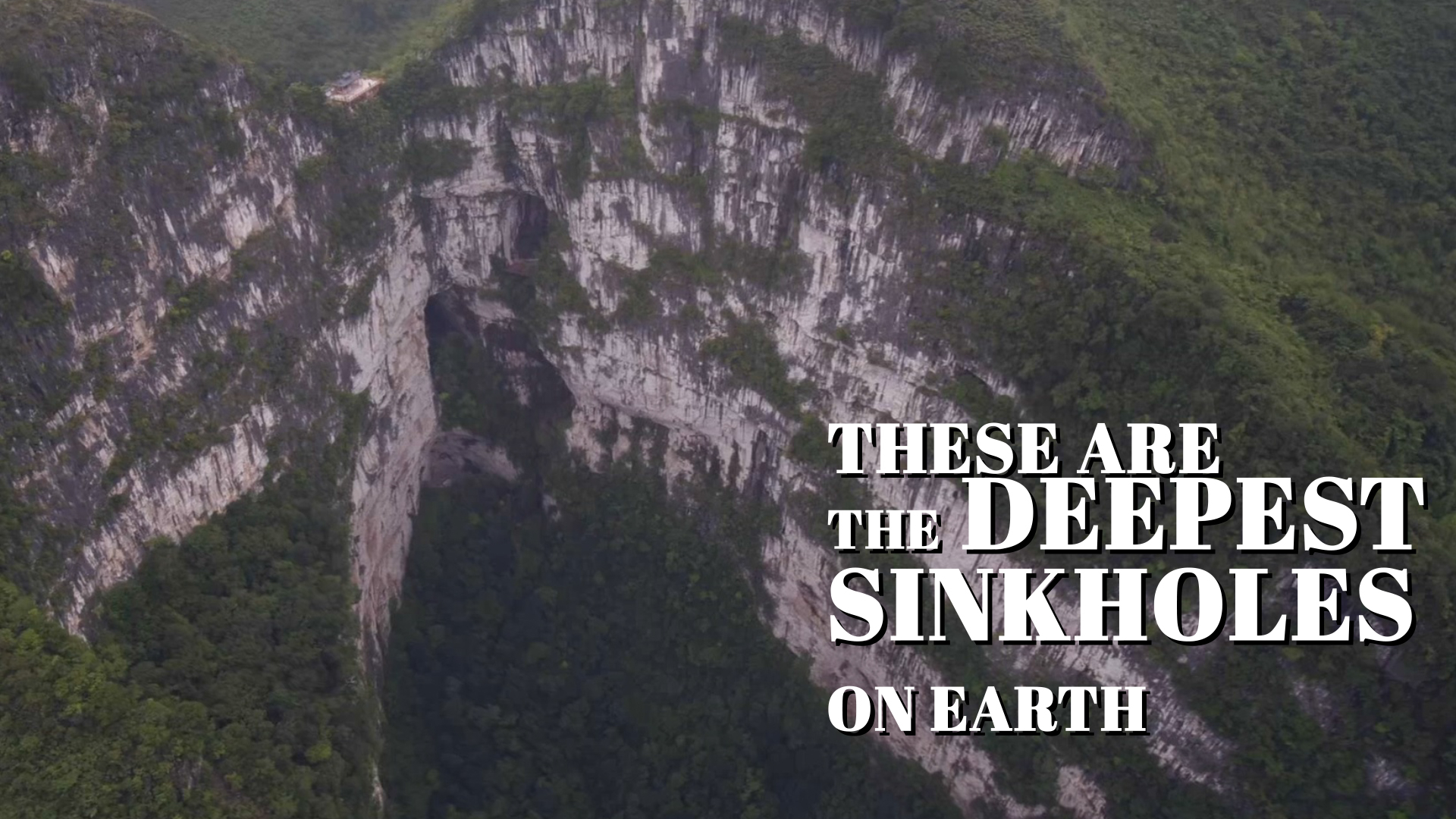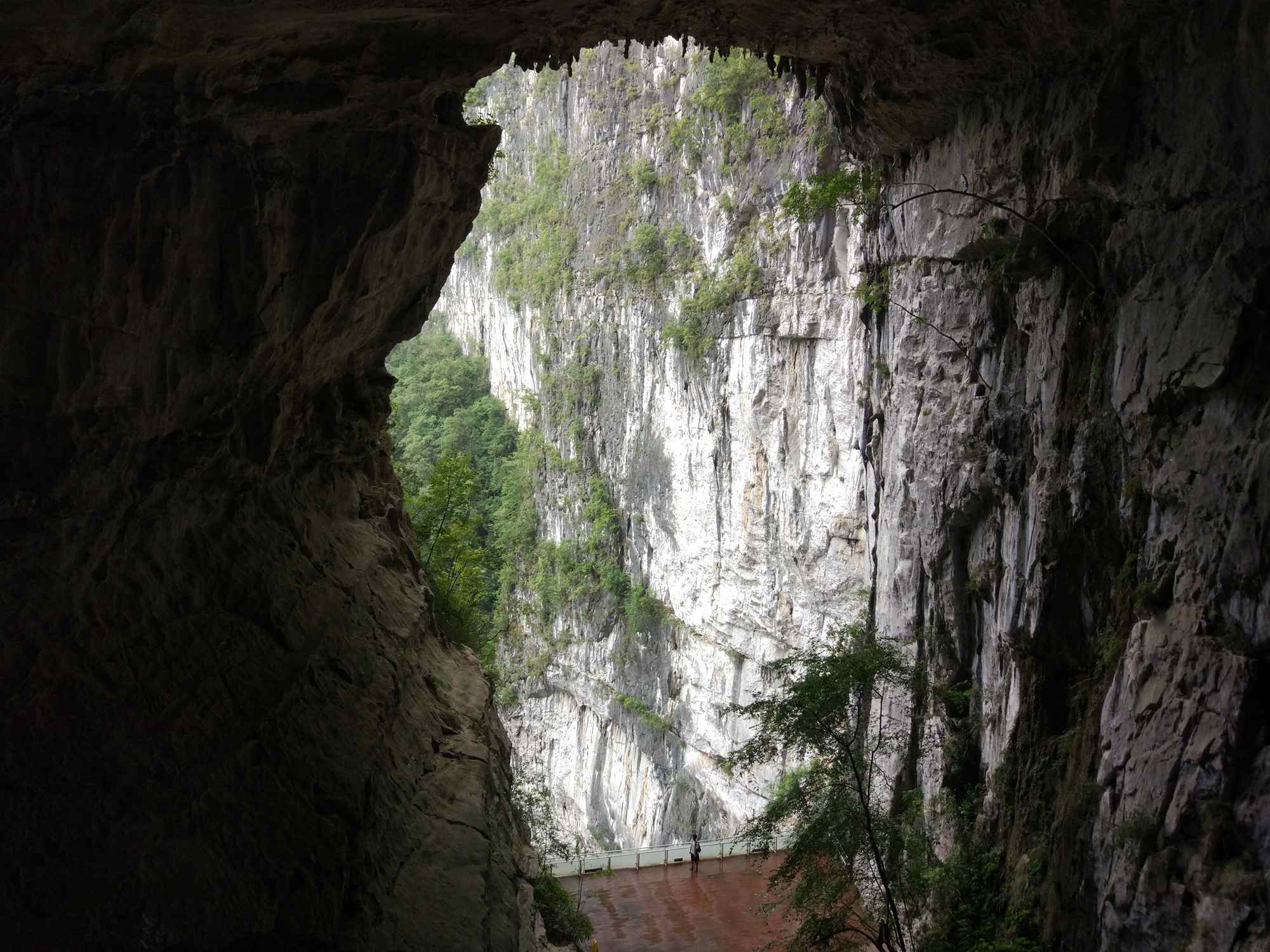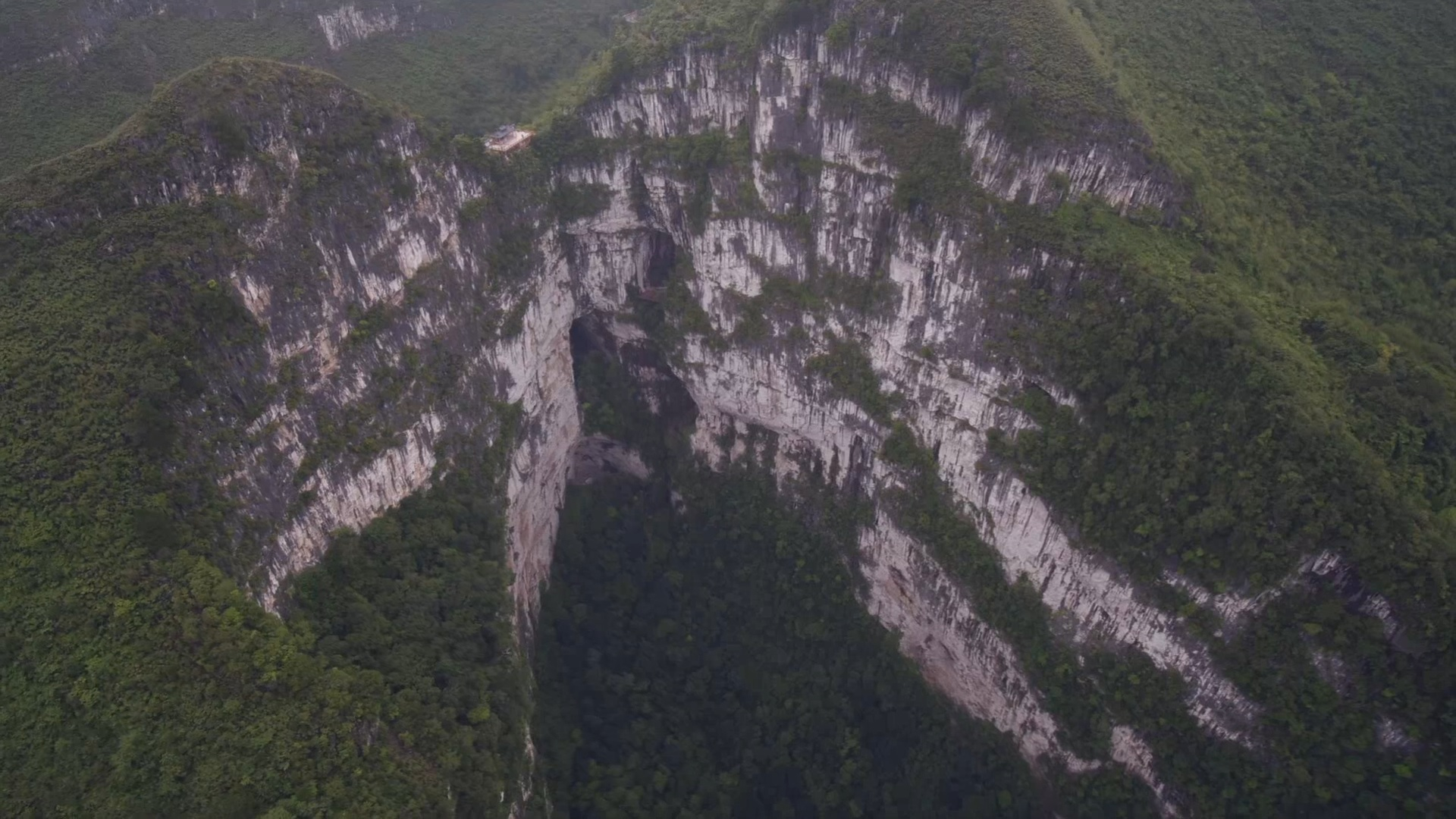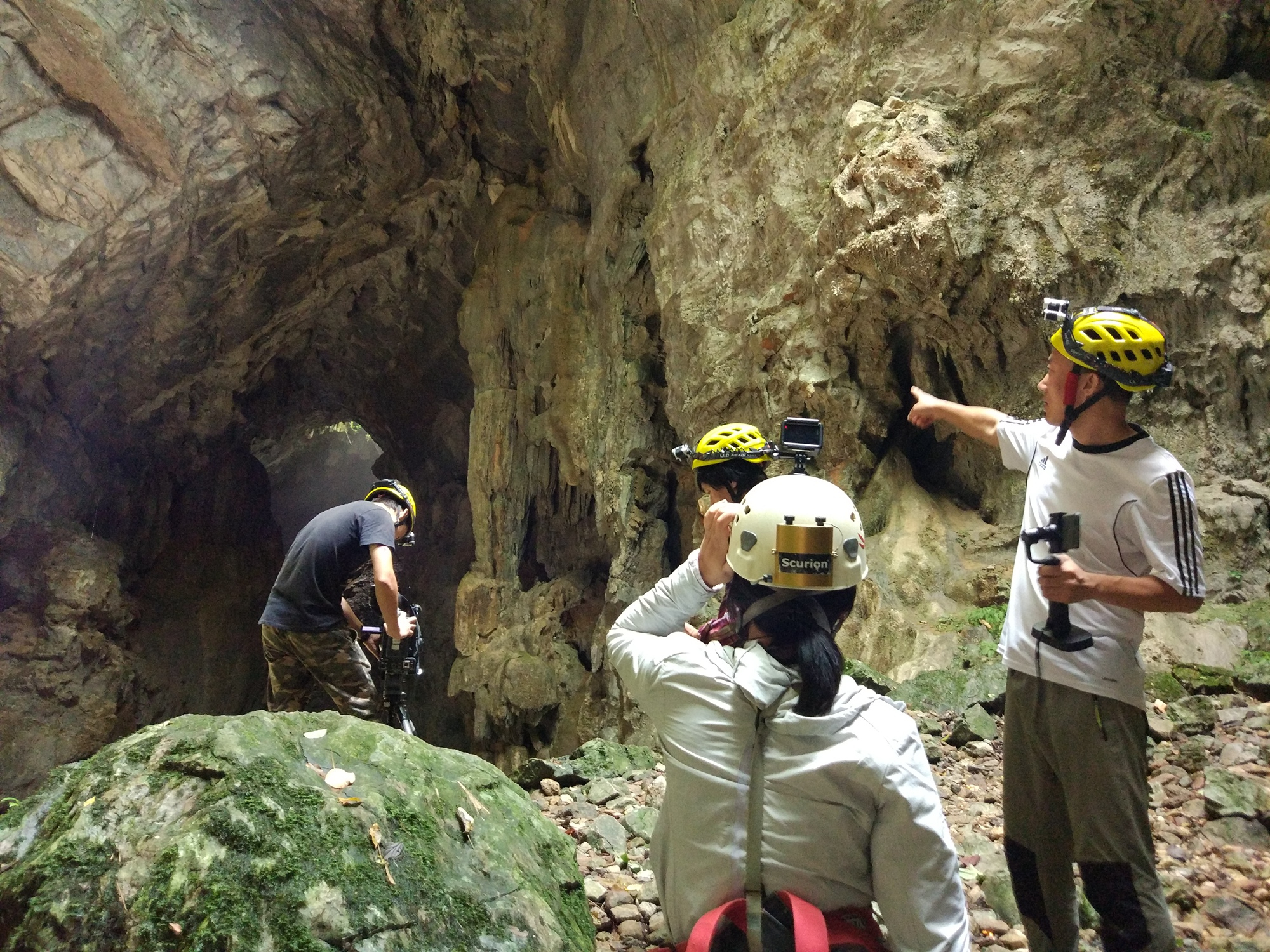
Destination
11:21, 01-Jun-2019
Travelogue: These are the deepest sinkholes on Earth
By Li Hui, Tianran He
02:57

Hidden beneath the karst mountains of Leye County in southern China are some of the deepest sinkholes on the planet. In Chinese they're known as "tiankeng," or heavenly pits, a name that poetically alludes to the immense size of these depressions that dwarf those found in Europe and the Americas.

Hornet's Cave was carved out by an underground river. /CGTN Photo
Hornet's Cave was carved out by an underground river. /CGTN Photo
Sinkholes form when the ground collapses. Often, as is the case in Leye County, it's because an underground water source has been eating away at limestone bedrock. Over time, a hollow void starts to form beneath the surface until it gets so big the roof caves in. Of the roughly 80 tiankengs around the world, nearly 30 are located within a cluster of mountains here in Leye County.

Dashiwei Tiankeng is one of the deepest sinkholes on Earth. /CGTN Photo
Dashiwei Tiankeng is one of the deepest sinkholes on Earth. /CGTN Photo
The biggest of them is the Dashiwei tiankeng. At 613 meters deep, it's roughly double the height of the Eiffel Tower. A virgin forest flourishes at the bottom of the pit, home to timid animals and exotic plants rarely disturbed by man. Flowing through its bowels is a subterranean river dozens of kilometers long, which will eventually resurface as a tributary of the Pearl River, China's third longest river. So far, we've only been able to map six kilometers of it. And while we tourists can only gawk at these heavenly pits from the safety of viewing platforms, they give us a tantalizing glimpse into the massive, unexplored worlds that exist beneath our very feet.

The Travelogue crew filming inside one of the smaller tiankengs. /CGTN Photo
The Travelogue crew filming inside one of the smaller tiankengs. /CGTN Photo
Explore the giant sinkholes of Leye County with Travelogue host Tianran He in the episode of our epic series, "The Pearl River: Mouth to Source". Travelogue broadcasts on Sundays at 7:30 a.m. and 4:30 p.m., Mondays at 2:00 a.m. and Thursdays at 1:30 p.m. (Beijing Time).
1918km

SITEMAP
Copyright © 2018 CGTN. Beijing ICP prepared NO.16065310-3
Copyright © 2018 CGTN. Beijing ICP prepared NO.16065310-3